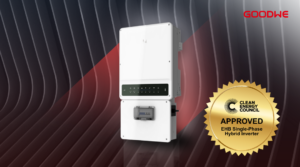The appeal of solar energy is undeniable, offering a sustainable and cost-effective alternative. Yet, for those with limited incomes, the prospect of making the switch may seem daunting. So, what are you going to do? Let us help you out.
If you’re curious about the potential cost savings and environmental benefits of solar energy for your home, consider exploring solar quotes from Energy Matters. Understanding your options is the first step towards a greener and more economical future.
Exploring affordable solar options
In your search for affordable solar solutions, the first step is identifying budget-friendly solar panel brands that deliver efficiency without compromising quality.
There are several solar panel brands today that fit your budget. Check out the following:
- LONGi: LONGi offers budget-friendly solar panels like the LONGi Hi-MO series, known for cost-effectiveness and reliable performance. What sets LONGi apart in Australia is its focus on producing high-efficiency panels at competitive prices, making solar energy accessible to a broader audience. The brand’s commitment to affordability without compromising quality distinguishes it from other solar panel options in the Australian market.
- Trina Solar: Trina Solar is known for making affordable solar panels that help people save money on electricity. They use smart technology to make their panels efficient, so you get more power for your money.
- JinkoSolar: JinkoSolar offers affordable models like the JinkoSolar Cheetah and JinkoSolar Tiger, providing cost-effective solutions for solar energy. Its commitment to quality and efficiency sets JinkoSolar apart, making it a reliable and economical option in the solar panel market.
Solar financing options
Low-income individuals aspiring to adopt solar energy can explore specialised financing options tailored for renewable energy projects. Solar loans, offered by financial institutions or dedicated lenders, are designed to ease the financial burden associated with installing solar panels.
These loans often come with favourable terms, including competitive interest rates and extended repayment periods. Understanding the nuances of solar loans involves examining eligibility criteria, interest structures, and potential collateral requirements. Beyond loans, individuals may also explore personal loans or lines of credit to fund their solar initiatives.
Negotiating affordable payment plans
Negotiating with solar providers is a critical step in ensuring the overall affordability of a solar project. To embark on successful negotiations, it’s crucial to conduct thorough research. Understand the complete cost of installation, including equipment, labour, and potential future expenses.
Leverage available incentives, rebates, and tax credits to enhance affordability. Negotiation strategies should also involve exploring flexible payment plans, upfront discounts or financing options directly offered by the solar provider. Being well-prepared and informed during negotiations can significantly impact the overall cost-effectiveness of your solar investment.
Government assistance programs and grants
Government assistance programs play a pivotal role in making solar energy accessible to low-income individuals. Various subsidies, grants, and incentive programs are offered at both the national and local levels. These initiatives aim to offset the initial costs of solar installation, making it a more viable option for those with limited financial means.
Navigating the landscape of government support involves understanding eligibility criteria, application processes, and the specific financial benefits offered. Leveraging these programs can significantly reduce the financial barriers associated with adopting solar energy.
DIY solar installation kits
Ever thought about putting together your own solar system? DIY solar installation kits are something worth exploring that will allow you to enjoy renewable energy with low income.
They are like solar packages that come with all the things you need—solar panels, inverters, wiring and mounting equipment. They’re designed to be user-friendly, making it possible for you to set up your own system without having to be an expert.
One of the biggest advantages of going this route is saving money on installation. By eliminating professional installation fees, you can cut down on the overall cost of your solar system significantly.
However, there are several challenges that you need to be ready for should you decide to set up your own solar system. By far, the biggest downside to this is that it will be difficult for you to claim government rebates. In Australia, you are eligible for government rebates when you have your system installed by a professional accredited by the Clean Energy Council.
In case you want your system to feed energy back into the grid, you will need to work with a licensed electrician to inspect and test your work. The electrician will also be the one to make the grid connection.
Finally, there are a lot of things that you should know before you get yourself a DIY solar kit to ensure safety. You need to think about the load-bearing capacity of your roof, work at heights, etc.
Therefore, DIY solar isn’t for everyone; but, it’s one of the options for low-income families who want to make the most out of the sun’s power.
Second-hand or refurbished solar panels
You might also want to consider checking out used or refurbished solar panels. When shopping for used solar panels, you need to have a keen eye for detail. Below are some of the most important things to look for:
- Corrosion and water damage: Inspect the frame and junction box for signs of corrosion or water damage. Corrosion can degrade the metal components, whilst water damage may indicate poor sealing. Both issues pose risks to the panel’s functionality and longevity. Make sure the junction box is securely sealed to prevent moisture ingress.
- Age: Older panels may have a shorter remaining lifespan and could be less efficient than newer models. Check the manufacturing date on the panel’s nameplate or ask the seller about its age.
- Electrical connections: Check the wiring and electrical connections to ensure they are intact and secured. Loose or damaged connections can lead to electrical issues, reducing the panel’s overall performance.
- Efficiency ratings: Efficiency measures how well the panels convert sunlight into electricity. Higher efficiency ratings indicate better performance. Consult the product specifications or documentation to understand the efficiency levels of the used panels. Compare these ratings to industry standards to gauge their effectiveness.
- Maintenance and repair history: Ask the seller about any previous maintenance or repairs performed on the panels. Information about past issues and how they were addressed can provide insights into the overall condition and reliability of the solar panels.
- Performance data: Request historical performance data for the secondhand solar panels. This information usually includes emails about energy production over time. Analysing performance data will let you assess how well the panels have been functioning and whether they meet your energy generation expectations.
There are many sources of secondhand solar panels in Australia. Online marketplaces, such as eBay and Facebook Marketplace are available you can also check out solar panel recycling centres.
Some regions have them that may sell functional used panels. You can also reach out to local solar installers. Sometimes, these companies replace panels during system upgrades, and they may be willing to sell the removed but still functional panels.
There are also renewable energy events and auctions and community renewable energy projects.
In wrapping up, bringing solar power to your Australian home on a tight budget has options that can work for you. We looked at solar loans made just for this, tips on talking money with solar companies, and even borrowing from people nearby through peer-to-peer lending.
Don’t forget, the government has programs to help out too. Whether it’s a loan, a good talk, or teaming up with neighbours, going solar doesn’t have to break the bank. So, let’s capture that sunlight and make it work for us in a wallet-friendly way!












































